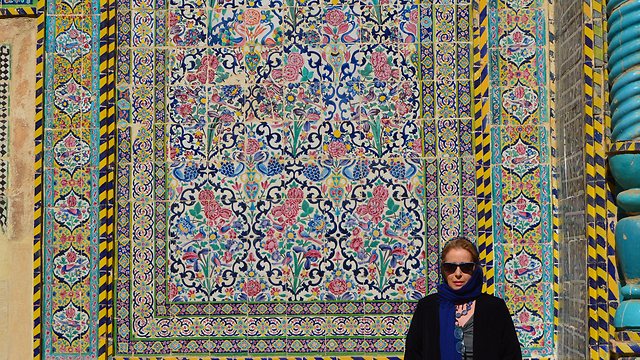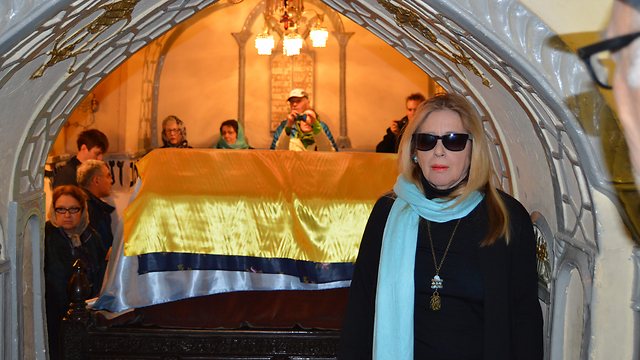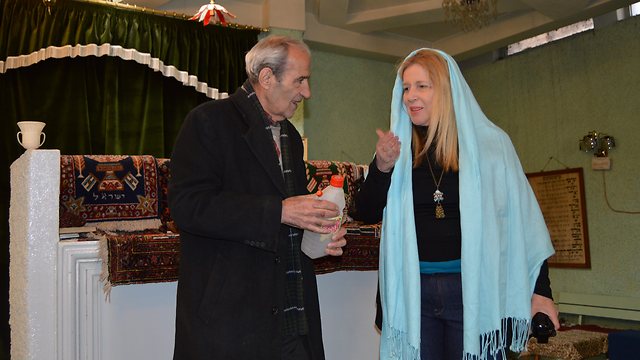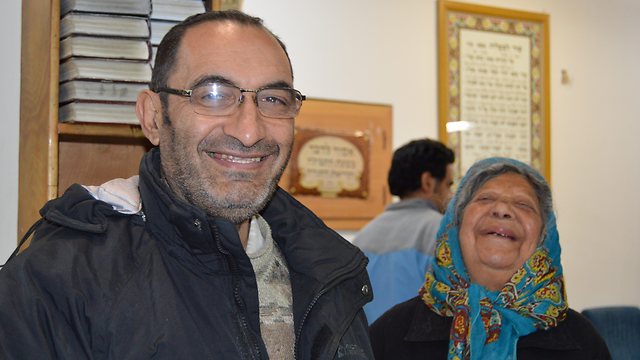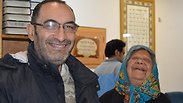
A meeting with the Jews of Iran
The members of the Jewish community of Isfahan won't discuss Netanyahu's speech to Congress and are adamant in their loyalty to the state. 'We don't talk politics,' they say.
The day's last rays of sunshine glimmered over the surface of the Zayandeh-Rood, "the life-giving river," that flows through Isfahan, Iran's third-largest city.
Soon it would be time for the evening prayer service; and I certainly wasn't going home without visiting at least one of the 17 synagogues in the city and speaking to the members of the second-largest Jewish community in the Islamic Republic.
I had a note in my pocket with the address of the Keter David synagogue, in the city's Palestine neighborhood; but when I met my Iranian escort at the entrance to my hotel and told him I was going to take a cab there, the blood drained from his face.
"They won't let you in," he said. "They are very wary of strangers."
I had already hailed a cab. "I have to pray," I said, and looked him straight in the eyes.
"Are you really going to prevent me from praying? You're a man of faith after all."
"Wait five minutes. I'll call R. and he'll go with you," my escort said, and he took out his cellphone, dialed and whispered a few words in Farsi.
R. showed up three minutes later and got into the cab with me, angry and stressed out.
I met R. earlier that afternoon, while we were eating lunch at the Shahrzad restaurant, one of Isfahan's finest.
A lecturer at the local university, R. knows the city well, and he spoke with me openly. He told me that he is friends with many of the Jews in the city, that he meets them at the university, in lectures.
"You know that it's a crime for Iranians to visit Israel – for the Jews too," he said. "If they do so, they could be sent to prison when they return. It's happened before."
Now, in the cab on the way to the synagogue, I asked him why he was so anxious.
"I'm afraid they'll give them trouble after your visit. After all, you’re from Israel," R. said, and then sunk into a deep silence until the end of our 20-minute drive.
'We love Iran'
I was met at the entrance to the prayer hall by Alina Turan, who has served as the synagogue's caretaker for the past 30 years.
"My life is good here. The synagogue is the center of my world," Alina said to me. "I live here, eat here, makes sure everything clean, that the holy scriptures are neatly arranged on the shelves. My husband died three years ago. I got sick. I'm old now.
"I would like to visit the Land of Israel, but now it's too late. I can't make the long journey. I pray every day, asking only for peace and unity between the nations."
Moshe Ibrahim Mula arrived on a scooter just in time for the prayer service.
"Speak the words slowly," he asked of me. "I haven't spoken colloquial Hebrew for years, only the Hebrew of the holy scriptures."
I asked him how many people show up for Friday evening prayers. "Twenty, thirty, forty," he replied. Do women come too, I asked.
"Yes, but not as many," he responded, pointing to the women's section on the second floor.
Mula sees his children's future in Iran. He has two daughters and two sons, all living in his neighborhood. He and his wife attend synagogue regularly, the children less so.
Like the other Jews I met, he refused to comment on the nuclear talks or Benjamin Netanyahu's address in Congress.
"It's not our concern," he said. "We don't talk politics. We leave that to the leaders. We are Iranians first and foremost. Iranian Jews, not Israeli Jews. We love Iran, our country. We live full lives. True, the sanctions have affected us too. Business is not what it used to be. There are no buyers. But we are sure that it will pass soon."
They were all clearly afraid to say anything that could upset the authorities. From my conversation in Hebrew with some of the worshipers, they understood I was Jewish like them – and Israeli too. R., my escort, appeared uneasy when he heard us speaking in the unfamiliar language.
Before the Islamic Revolution, Iran was home to around 100,000 Jews. Most left after Ayatollah Khomeini's rise to power, but the country still boasts the largest Jewish community in the Middle East outside of Israel – some 30,000, mostly in Tehran and Isfahan. Many have family members in Israel – children, grandchildren and siblings.
Khomeini, who called for the destruction of Israel, issued a special fatwa (Islamic ruling) that determines that the Jews of Iran are not the same as the Jews in Israel and should be treated as an integral part of the Islamic Republic.
The Jews have a permanent representative in the Iranian parliament, but no representation in the government, judiciary or financial establishment.
"Our dream is for there to be a Jewish minister in the government one day, or at least a judge," worshipers at the synagogue said to me.










